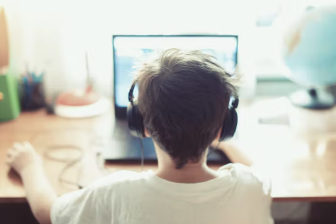
Specialist UK clinic for children addicted to gaming
Children and young adults addicted to computer gaming will now be able to get help on the UK’s National Health Service with the launch of the country’s first specialist clinic.
The new service is part of the National Centre for Behavioural Addictions which will also provide support for internet addiction and is located alongside the National Problem Gambling Clinic.
It comes amid growing concerns about the amount of time children and teenagers spend playing online games and the impact it can have on their mental health. The World Health Organization also recently classified gaming disorder as a mental health condition for the first time.
‘Health needs are constantly changing’
The new UK centre has been launched at the same time as the children and young person’s gambling addiction service goes live. It is part of an expansion of treatments promised in the NHS Long Term Plan, with referrals for both young people’s services starting in this month.
Psychiatrists and clinical psychologists at the services will work with patients aged between 13-25 whose lives are being wrecked by severe or complex behavioural issues associated with gaming, gambling and social media.
Simon Stevens, NHS chief executive, said: “Health needs are constantly changing which is why the NHS must never stand still – this new service is a response to an emerging problem, part of the increasing pressures that children and young people are exposed to these days. However, the NHS should not be left to pick up the pieces – gambling and internet firms have a responsibility to their users as well as their shareholders and should do their utmost to prevent rather than cash in on obsessive or harmful behaviour.”
‘Many countries are grappling with the issue of gaming’
“Gaming disorder is defined by the World Health Organization as a pattern of persistent or recurrent gaming behaviour so severe that it takes ‘precedence over other life interests’.”
Symptoms include impaired control over gaming, increased priority to gaming and continuation or escalation of gaming despite negative consequences – such as the impact on relationships, social life, studying and work life or spiralling financial costs.
Many countries are grappling with the issue of gaming and internet addiction In South Korea the government has introduced a law banning access for children under 16 from online games between midnight and 06:00.
‘..a problem that is not going to go away’
In Japan, players are alerted if they spend more than a certain amount of time each month playing games and in China, internet giant Tencent has limited the hours that children can play its most popular games.
Claire Murdoch, NHS national mental health director, said: “Compulsive gaming and social media and internet addiction is a problem that is not going to go away when they play such a key part in modern life.
“The NHS is rising to the challenge – as it always does – with these new, innovative services, but we can’t be expected to pick up the pieces, which is why tech giants need to recognise the impact that products which encourage repeated and persistent use have on young people and start taking their responsibilities seriously too.”




